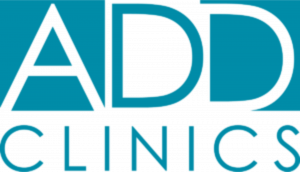ADD-Friendly Exercise Programs Linked to Improved Focus and Cognitive Function
Recent research points to the positive effects of physical movement on the brain’s executive function—the area responsible for concentration, planning, and emotional regulation. For individuals with ADD, these improvements are particularly significant. Structured exercise routines help regulate neurotransmitters such as dopamine and norepinephrine, which play a role in impulse control and mental clarity.
Dr. Stanford Owen, founder of ADD Clinics in Gulfport, observes that physical activity can be a strategic tool in supporting brain function, especially when tailored to match attention patterns common in ADD. “Exercise isn’t just for fitness—it’s one of the most underused cognitive tools available to support attention and focus,” said Dr. Owen.
Among the most effective workouts identified for supporting cognitive function are:
Brisk Walking: As little as 20 to 30 minutes of walking at a moderate pace has been shown to enhance blood flow to the brain, improve memory recall, and reduce mental fatigue. Walking routines, particularly in nature or low-stimulus environments, also reduce sensory overload.
High-Intensity Interval Training (HIIT): Short bursts of intense activity followed by brief recovery periods stimulate the release of neurochemicals linked to motivation and sustained attention. These workouts are especially helpful for individuals who struggle with routine or prolonged effort.
Yoga and Breathing-Focused Practices: Controlled movement, breath regulation, and intentional posture changes can calm the nervous system and enhance executive functioning. Yoga sessions focused on repetition and structure provide a grounding experience that supports attention control.
Balance and Coordination Drills: Exercises requiring cross-lateral movement (such as lunges with arm swings or balancing while reaching) activate multiple brain regions simultaneously. These activities train both motor control and mental flexibility.
The team at ADD Clinics emphasizes that consistency, rather than intensity, is the determining factor in cognitive improvement. For individuals managing ADD, the key is creating routines that are easy to start, enjoyable to repeat, and capable of producing neurological engagement.
Dr. Owen notes that brain scans of individuals engaged in regular physical activity show enhanced connectivity in regions linked to learning and attention. In clinical settings, these benefits can translate to improved time management, better task initiation, and reduced mental drift during complex activities.
Importantly, these workouts are being implemented as accessible daily routines, not intensive athletic programs. They are designed for sustainability, which aligns with behavioral patterns seen in those managing ADD. Predictable, time-bound movement sessions build discipline while stimulating cognitive momentum.
Emerging studies continue to support the neurological advantages of combining physical activity with cognitive training. For instance, performing simple math or spelling drills during walking sessions has shown to enhance working memory. Other multi-modal routines—such as following verbal instructions while balancing—encourage brain flexibility and focus retention.
In children and adolescents, movement has been linked to improved classroom behavior, longer attention spans, and stronger academic outcomes. In adults, physical routines are helping to reduce mental fatigue, improve task switching, and create more predictable patterns of focus throughout the day.
Dr. Owen’s clinic in Gulfport has implemented customizable exercise modules that are incorporated into broader therapeutic plans. These are designed to reinforce executive function through daily physical activation, reinforcing the concept that brain health and body movement are inseparable. The ADD Clinc in Gulfport has a complete gym of Nautilus strength equipment and aerobic equipment where patients can be shown specific strategies.
As healthcare providers continue to explore non-pharmacological tools for managing ADD symptoms, structured exercise stands out as a practical, low-risk option that can be used in home, school, or clinical settings. The neurochemical effects of physical activity—combined with its predictable, task-oriented structure—make it uniquely suitable for those who experience attention regulation difficulties.
ADD Clinics remains committed to understanding how body-based routines support focus, memory, and emotional regulation. The integration of physical movement into cognitive care plans represents a growing trend in personalized, brain-focused interventions.
As the understanding of brain chemistry and neuroplasticity expands, the role of movement in managing attention disorders is expected to grow in both relevance and application. Exercise is not merely a peripheral recommendation—it is becoming a foundational component in the broader conversation about cognitive function and daily performance.
Morgan Thomas
Rhino Digital, LLC
+1 504-875-5036
email us here
Visit us on social media:
Facebook
Legal Disclaimer:
EIN Presswire provides this news content "as is" without warranty of any kind. We do not accept any responsibility or liability for the accuracy, content, images, videos, licenses, completeness, legality, or reliability of the information contained in this article. If you have any complaints or copyright issues related to this article, kindly contact the author above.
Restaurantes en Polanco apuestan por cenas ligeras y equilibradas: Estas son las mejores opciones
leagend Unveils Customizable Lead‑Acid Charger ODM Solution to Enhance Gardening Tool Battery Lifespan and Efficiency
Dana L. Cox to Appear on Fintech.TV to Discuss How Business Acquisition Can Close the Wealth Gap for Women
Więcej ważnych informacji
 Jedynka Newserii
Jedynka Newserii

 Jedynka Newserii
Jedynka Newserii

Ochrona środowiska

Kraje dotknięte powodzią z 2024 roku z dodatkowym wsparciem finansowym. Europosłowie wzywają do budowy w UE lepszego systemu reagowania na kryzysy
W lipcu Parlament Europejski przyjął wniosek o uruchomienie 280,7 mln euro z Funduszu Solidarności UE na wsparcie sześciu krajów dotkniętych niszczycielskimi powodziami w 2024 roku. Polska otrzyma z tego 76 mln euro, a środki mają zostać przeznaczone na naprawę infrastruktury czy miejsc dziedzictwa kulturowego. Nastroje polskich europosłów związane z funduszem są podzielone m.in. w kwestii tempa unijnej interwencji oraz związanej z nią biurokracji. Ich zdaniem w UE potrzebny jest lepszy system reagowania na sytuacje kryzysowe.
Handel
Nestlé w Polsce podsumowuje wpływ na krajową gospodarkę. Firma wygenerowała 0,6 proc. polskiego PKB [DEPESZA]

Działalność Nestlé w Polsce wsparła utrzymanie 45,2 tys. miejsc pracy i wygenerowała 20,1 mld zł wartości dodanej dla krajowej gospodarki. Firma przyczyniła się do zasilenia budżetu państwa kwotą 1,7 mld zł – wynika z „Raportu Wpływu Nestlé” w Polsce przygotowanego przez PwC na podstawie danych za 2023 rok.
Polityka
M. Kobosko: Surowce dziś rządzą światem i zdecydują o tym, kto wygra w XXI wieku. Zasoby Grenlandii w centrum zainteresowania

Duńska prezydencja w Radzie Unii Europejskiej rozpoczęła się 1 lipca pod hasłem „Silna Europa w zmieniającym się świecie”. Według zapowiedzi ma się ona skupiać m.in. na bezpieczeństwie militarnym i zielonej transformacji. Dla obu tych aspektów istotna jest kwestia niezależności w dostępie do surowców krytycznych. W tym kontekście coraz więcej mówi się o Grenlandii, autonomicznym terytorium zależnym Danii, bogatym w surowce naturalne i pierwiastki ziem rzadkich. Z tego właśnie powodu wyspa znalazła się w polu zainteresowania Donalda Trumpa.
Partner serwisu
Szkolenia

Akademia Newserii
Akademia Newserii to projekt, w ramach którego najlepsi polscy dziennikarze biznesowi, giełdowi oraz lifestylowi, a także szkoleniowcy z wieloletnim doświadczeniem dzielą się swoją wiedzą nt. pracy z mediami.


![Nestlé w Polsce podsumowuje wpływ na krajową gospodarkę. Firma wygenerowała 0,6 proc. polskiego PKB [DEPESZA]](https://www.newseria.pl/files/1097841585/fabryka-nesquik_1,w_85,r_png,_small.png)






.gif)

 |
| |
| |
|